CAMP BULLIS, San Antonio, Texas (Army News Service, May 14, 2009) - More than 100 Army active, Reserve, and National Guard medics assigned to hospitals and medical units from throughout the United States, have been competing here the past two weeks for the coveted Army's Expert Field Medical Badge. Those who pass the grueling test are considered the "best of the best" because they were able to withstand all of the challenges placed before them.
The competition, which is similar to the Expert Infantry Badge, measures the Soldiers' physical fitness, mental toughness, and ability to perform to standard, a broad spectrum of critical medical and Soldier skills that realistically replicate what Army medics face on a daily basis during combat.
"For the Soldiers who are allowed to compete, when they come here, more is expected of them-these aren't the regular old Soldiers, these are the guys that have taken it to that next level, taken it to the limit," said Army Maj. Marcus Hurd, officer-in-charge of the EFMB site.
Open to all medical personnel, the first week of the two-week competition is the standardization phase, where the instructors review testing standards with the Soldiers, preparing them for the next phase of competition, according to Sgt. 1st Class William Ott, Fort Sam Houston EFMB test control officer.
"During week two, the Soldiers are subjected to warfare conditions-small arms fire and explosions during testing that consists of day and night land navigation, tactical combat causality care, medical and causality evacuation, communication tasks, warrior skills tasks, and culminates with a 12-mile foot march," said Ott.
Ott said that, for Soldiers testing at the South Texas site, a "triple whammy" of extreme heat, difficulty with translating medical knowledge into 'real world' application and physical demands translates into a very high attrition rate, with only about 20 percent of those who test actually pinning on the badge.
"This competition is a physical and mental challenge. It pushes you to the limit and it tests your abilities," said Staff Sgt. Isagani Maawac, a surgical technician at Fort Sam Houston. "To be honest, I don't know if I would do it again, so hopefully I get a 'go,' and make it out of here the first time," said Maawac.
The EFMB was established in June 1965 as a Department of the Army special skill award to recognize exceptional competence and outstanding performance by field medical personnel.
According to Hurd, the test is a valuable tool today because the training and testing required to earn the badge helps Soldiers keep their medical skills current during a wartime environment.
"Everything that we do on a regular basis makes us a better medic, but this competition gives us the confidence that we can do this under pressure, during peacetime or wartime. As long as you mentally prepare yourself to include your physical portion of it, you can accomplish anything with the military or whatever you do in life," added Maawac.
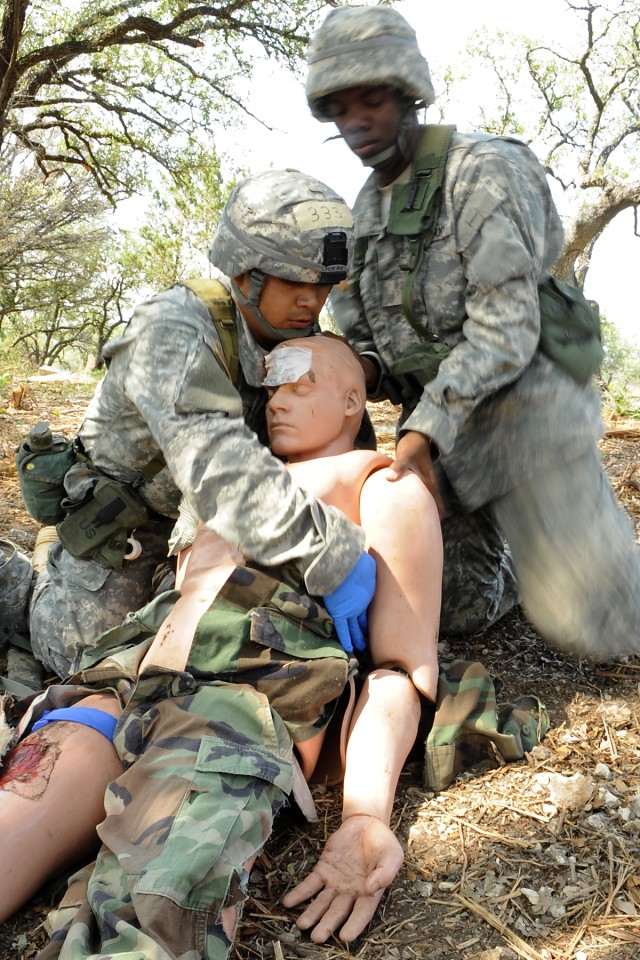
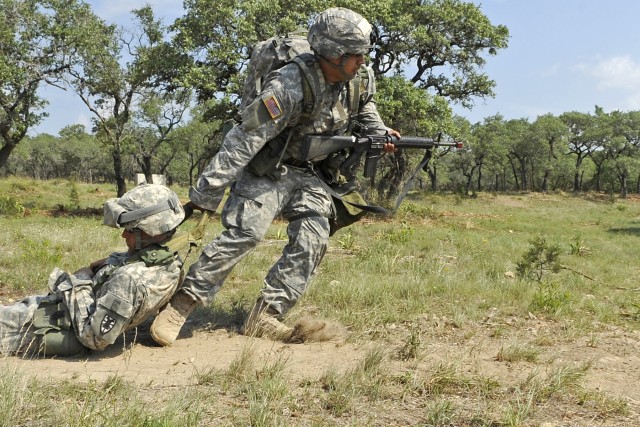
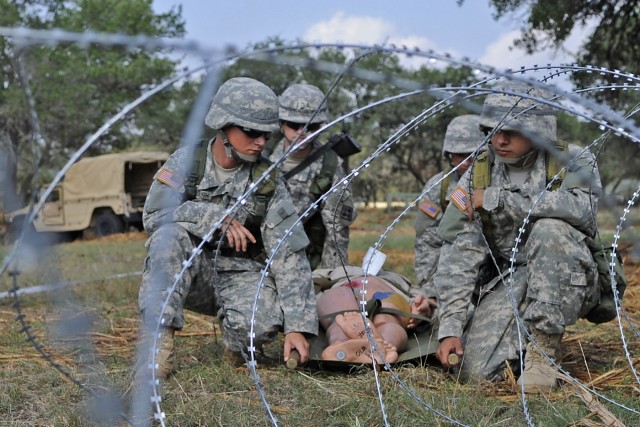
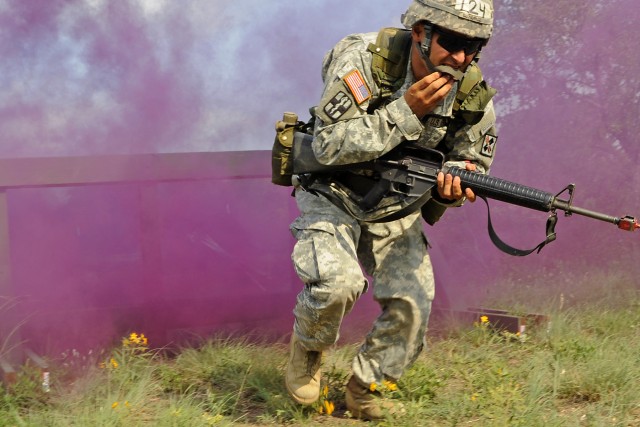
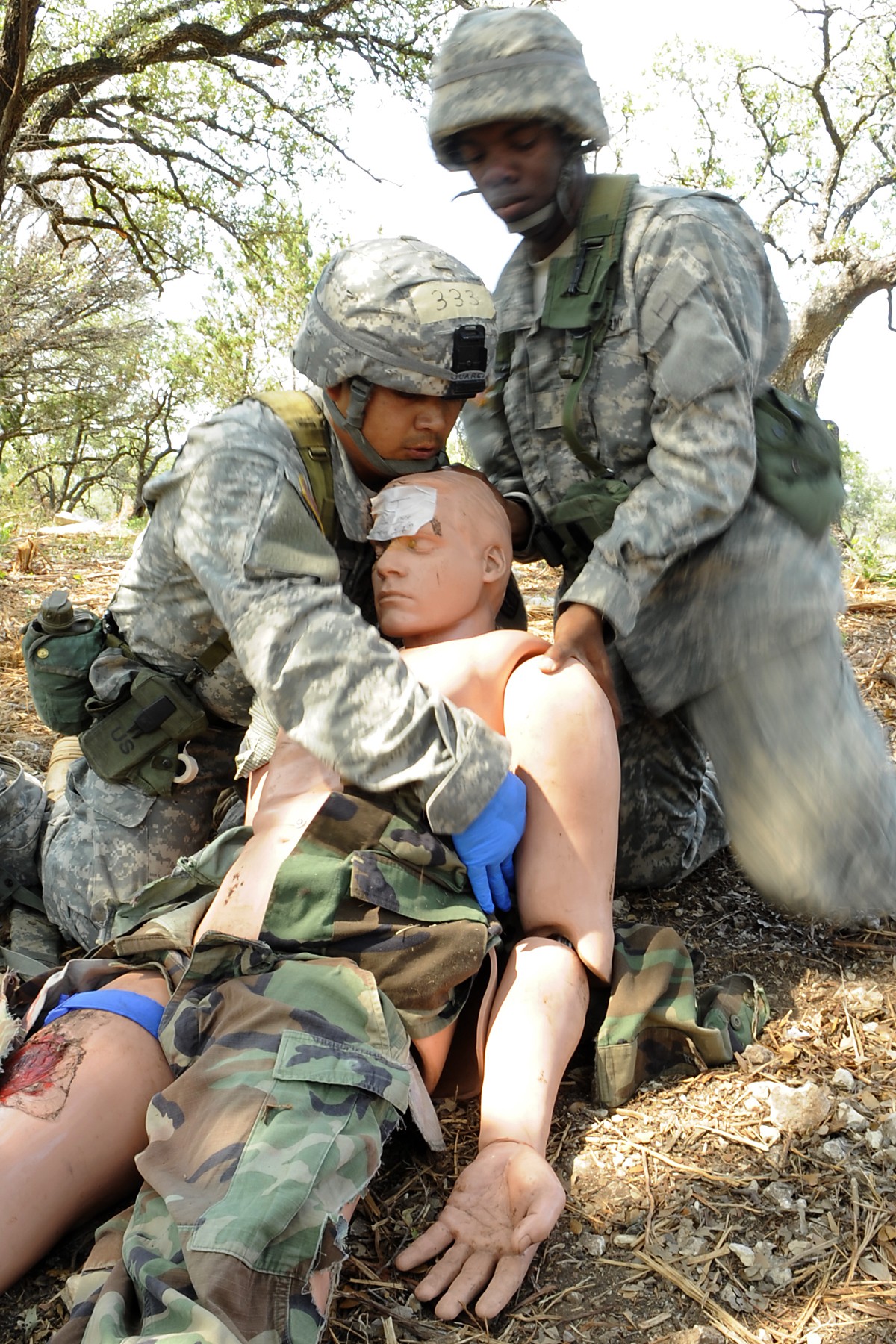
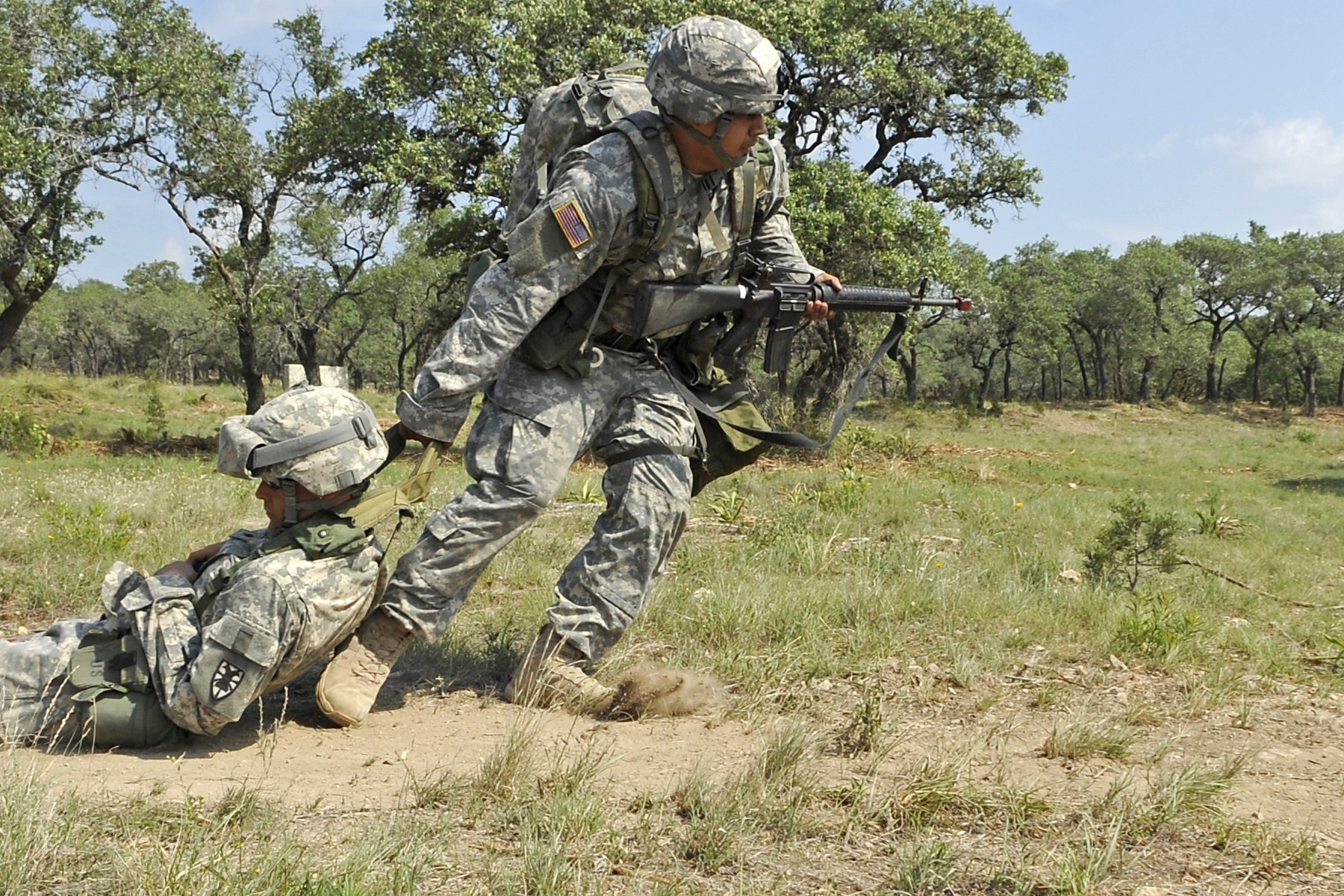
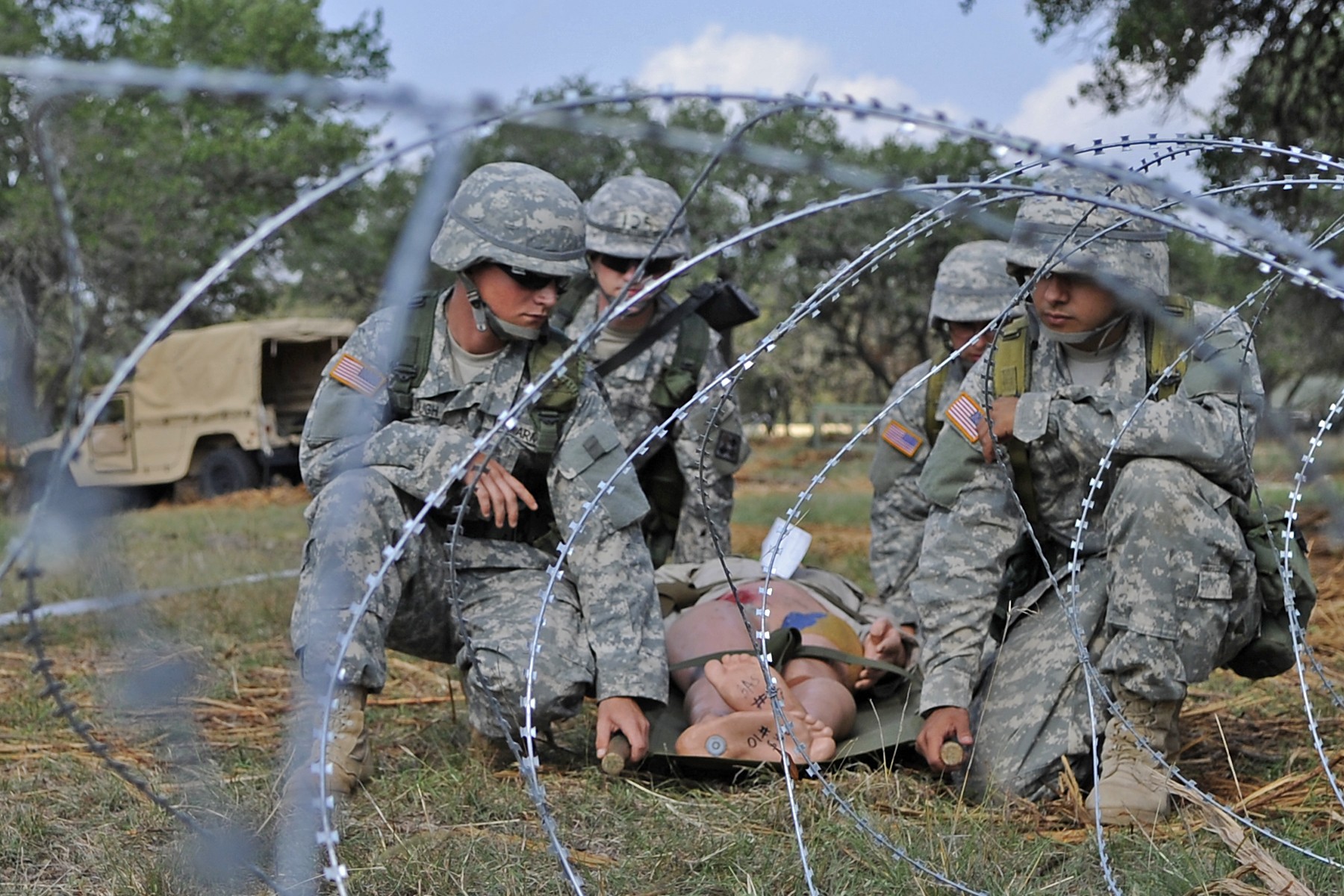
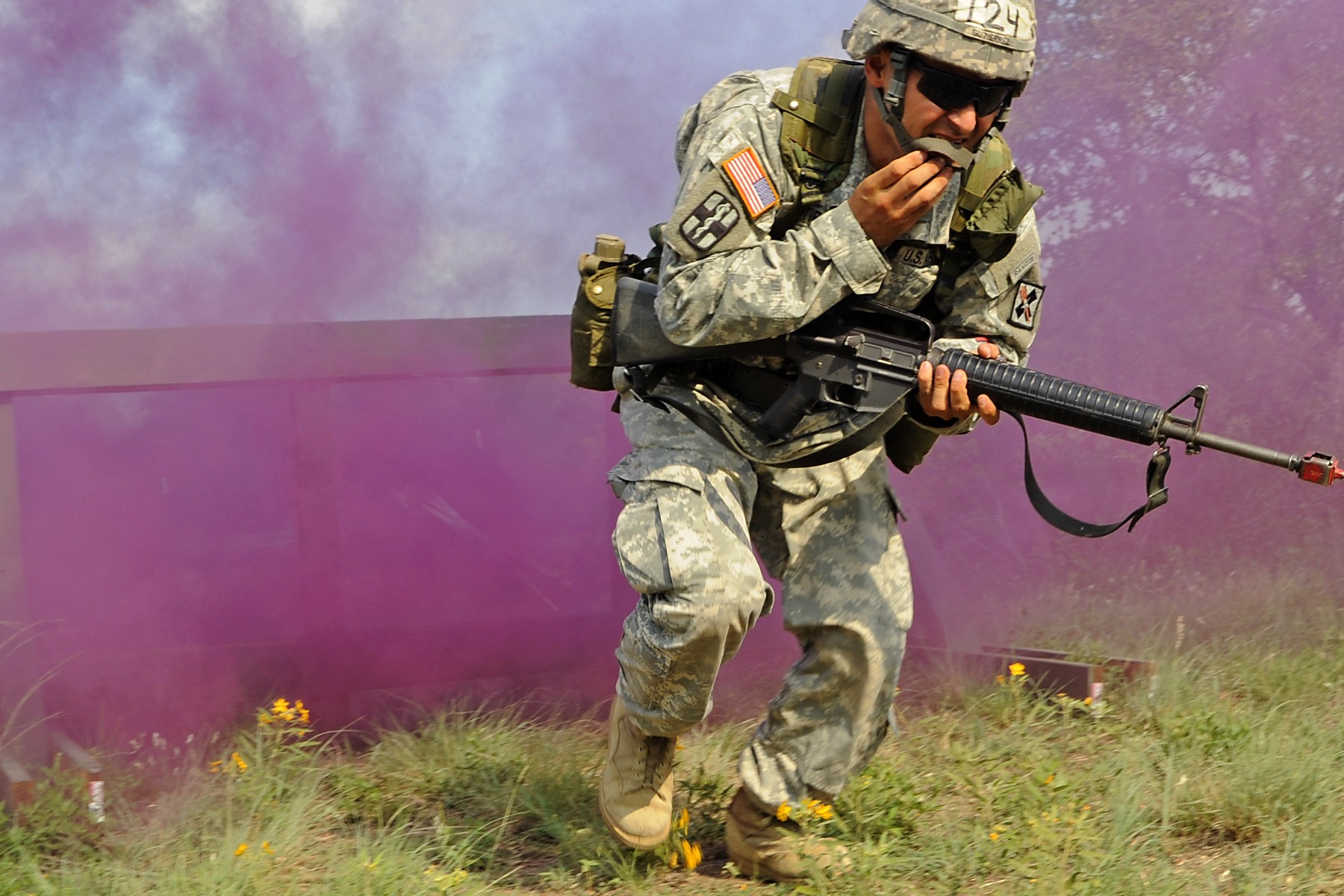
Social Sharing